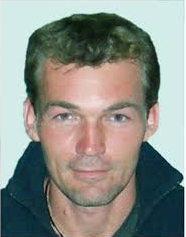Olivier CuvierLaboratoire de biologie moléculaire eucaryote (LBME) - CNRS / Université de Toulouse
Mes recherches
My lab’s research themes focus on chromosome biology and the roles of genomic organization in gene expression and cell proliferation. We notably study such influences of chromatin at scales ranging from a single positioned nucleosome up to the organization of genomes in 3D, such as the loops juxtaposing regulatory elements to their target genes. We tackle these questions using state-of-the-art experimental strategies together with genomic/bioinformatic approaches.
I took a Master in DNA looping depending on supercoiling in Heidelberg & Grenoble (EMBL/Jorg Langowski-Germany and France-1994), then a PhD to uncover the first family of insulator-mediated functional looping at the University of Geneva (UK Laemmli-Switzerland-1995-2000) before moving to Cold Spring Harbor Lab (CSHL, Tatsuya Hirano, USA) to work on looping at mitosis by the chromosome compaction machinery, e.g. condensin. I then continue by studying a novel function of topoisomerase II in (re-)setting chromatin loops and DNA replication origins at the interphase-to--mitosis transition, with Dr. M. Méchali, at the Institute of Human genetics (IGH-CNRS, Montpellier). I was recruited CR in 2007 and obtained the ATIP-Avenir in 2009. I set up my group in Toulouse, at the Center of Integrative Biology (CBI, formerly LBME) and acknowledge the ATIP-Avenir program for supporting my lab at a key stage of my career.
Insulator-mediated regulation of gene expression through Nucleosome positioning and Long-range interactions
Two emerging concepts in chromatin biology are: nucleosome-positioning, which controls the accessibility of the genetic material and long-range DNA interactions, which allow regulations over long distances through the clustering of distant loci into factories/bodies. Nucleosome-positioning and long-range DNA interactions govern chromatin organization, gene expression and genomic stability, but very little is known about their regulatory mechanisms.
Nucleosome-positioning is influenced by DNA sequences through DNA-histones contacts that are favored in G+C-rich regions. These interactions are however not stable, and specific DNA-binding insulator proteins such as insulator proteins that bind to DNA with hundreds of times higher affinities, may thus strongly impact nucleosome-positioning. Insulator proteins further regulate long-range interactions, by clustering their binding sites into bodies. Spatial clustering is thought to play key roles in regulating gene expression but the precise roles of insulators remain ill-defined. We will investigate how insulator and co-factors position nucleosomes or assemble insulator bodies, to regulate genes involved in cell proliferation.
